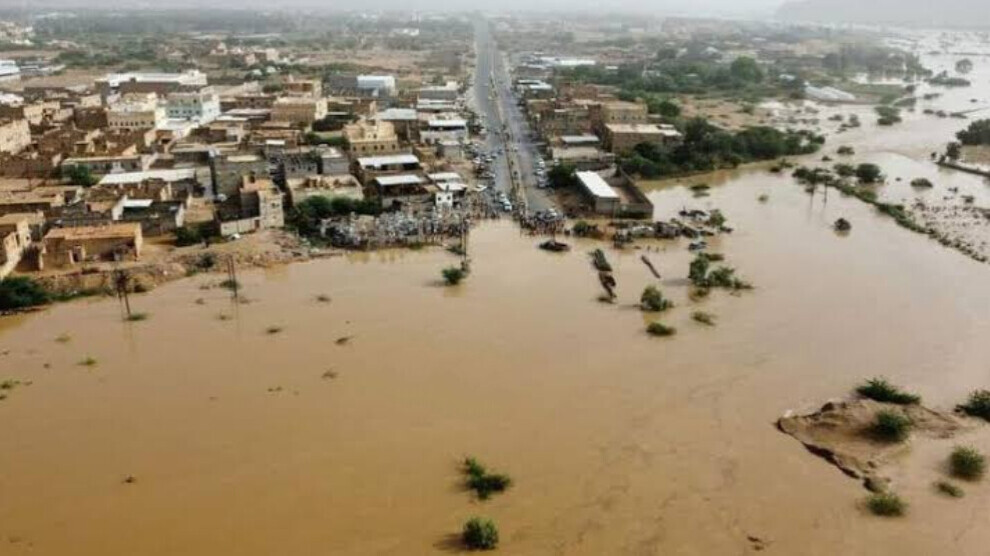Humanitarian catastrophe: Nearly 3,000 families affected by floods in Marib
Nearly 2,944 families in Yemen’s Marib have been hit by floods, amid warnings of worsening humanitarian conditions and limited relief efforts.

News Center – Torrential rains and flash floods have swept across large parts of Yemen, inflicting severe damage on displacement camps—particularly in the city of Marib, home to one of the country’s largest populations of internally displaced people.
Since early August, heavy downpours and thunderstorms have inundated tents and makeshift shelters in Marib, leaving behind destruction that has claimed lives, damaged homes and belongings, and deepened the humanitarian crisis facing thousands of displaced families.
According to the Executive Unit for IDP Camps Management’s report released on Sunday, August 31, about 2,944 families were affected, including 464 whose shelters were completely destroyed, while 2,480 families sustained partial damage. The floods also caused the deaths of three people and left two others injured, alongside widespread losses to personal property, water tanks, sanitation systems, and camp infrastructure across Marib, Al-Wadi, Raghwan, and Harib districts.
Local residents warn that the situation could deteriorate further if heavy rains persist, noting that overcrowded camps, built from fragile materials, are already unable to withstand recurring climate shocks amid limited aid and dwindling resources.
The Executive Unit urged humanitarian and relief organizations to respond swiftly with emergency assistance, stressing the need to adapt shelter interventions to extreme weather conditions and to address urgent needs in food, health, education, and sanitation.
Marib has hosted hundreds of thousands of Yemenis displaced by years of conflict, making it one of the largest displacement hubs in the country. Yet, camps scattered across the city and its districts lack the infrastructure needed to withstand natural disasters, leaving families increasingly vulnerable.
International organizations have also warned that displaced populations in Marib face dire humanitarian conditions, with limited access to basic services, soaring poverty, and rising levels of food insecurity.
